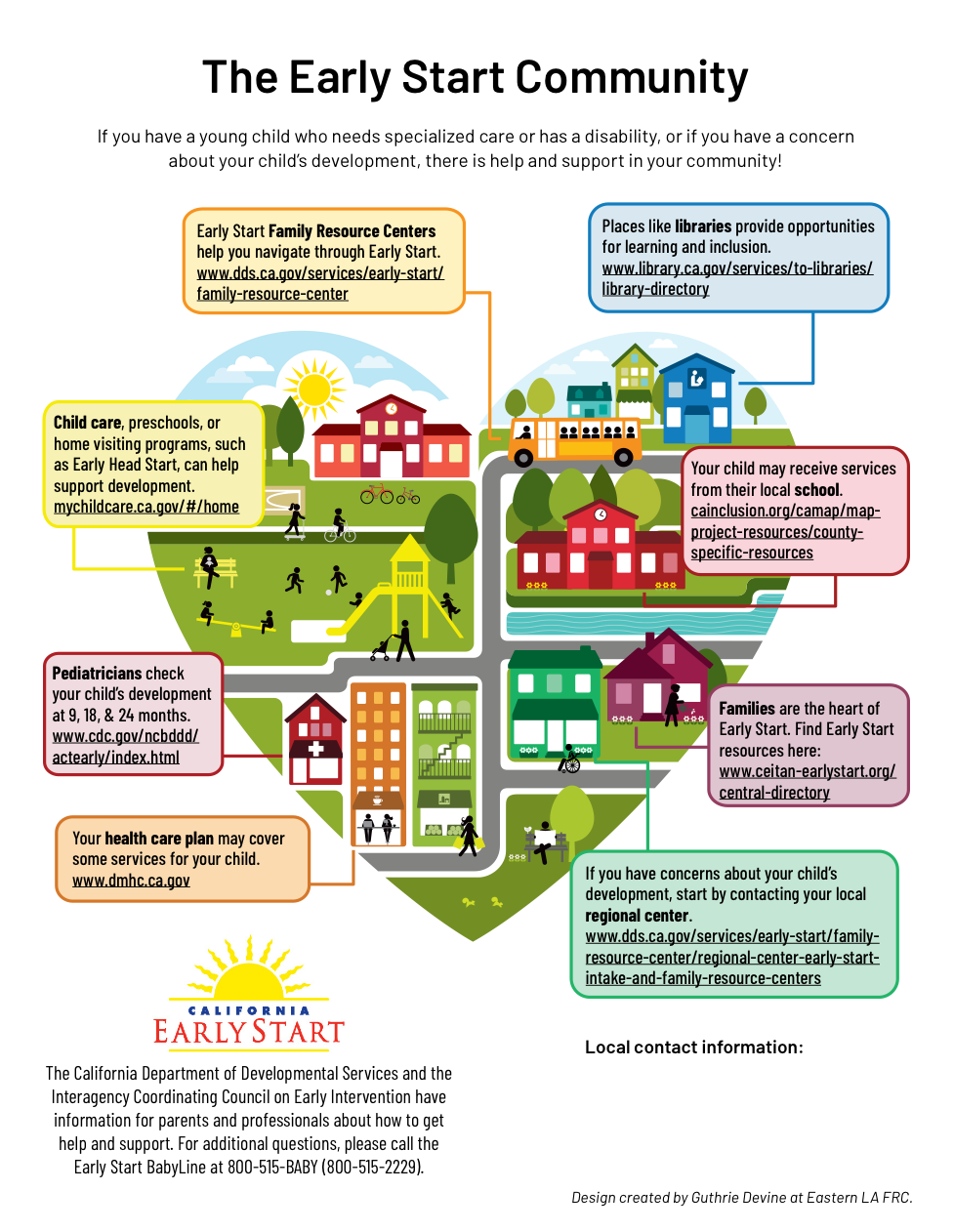The Early Start program, which provides early intervention services, has experienced a decline in referrals since the beginning of the pandemic. Because early intervention is critical for children to achieve the best possible developmental outcomes, the Department of Developmental Services and partners are working together to share information and resources. It is important for referral agencies and families to know that all 21 regional centers across California remain open and are accepting referrals. If an infant or toddler has, or is suspected of having, a delay or disability, contact the local regional center about possible Early Start services. Anyone can make a referral. To find your local regional center, go to https://www.dds.ca.gov/services/early-start/family- resource-center/regional-center-early-start-intake-and-family-resource-centers/ or call 1-800-515 BABY.
The Early Start Community Resources are available in 10 different languages which can be found here: https://www.dds.ca.gov/services/early-start/early-start-publications-resources-and-program-guidance/publications/.


